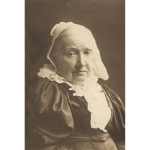I
The ground dove stuttered for a few steps then flew
up from his path to settle in the sun-browned
branches that were now barely twigs; in drought it coos
with its relentless valve, a tiring sound,
not like the sweet exchanges of turtles in the Song
of Solomon, or the flutes of Venus in frescoes
though all the mounds in the dove-calling drought
the hills and gulches all briary and ochre
and the small dervishes that swivelled in the dust
were like an umber study for a fresco
of The Prodigal son, this scorched, barren acre.
He had the smell of cities in his clothes,
the steam and soot of trains of Fascist stations
and their resounding vaults, he had the memory of rain
carried in his head, the rain on Pescara's beach
with the pastel hotels, and instead of the doves
the air-show with the jets soaring and swooping
over the Fair, the smell off that beach
came back on the rock-road where the turtle lifted
its mating music into the dry acacias,
and mixed with the smell off the galloping sea-flock,
each odour distinct, of sheep trampling their pens
as if their fear had caught the wolf-scent.
The rock-brown dove had fluttered from that fear
that what he loved and knew once as a boy
would panic and forget him from the change
of character that the grunting swine could smell.
A sow and her litter. Acknowledged prodigal.
Grey sunrise through a sky of frosted glass,
the great trees sodden, the paths below them pooled,
the headlands veiled and muslin-thin, no birds,
and pale green combers cresting through the drizzle;
a change of climate, the clouding of the self
in a sudden culture but one more confident
in its glazed equestrian statues in wet parks,
its railway stations echoing like the combers
in the ground-shaken caves under the cliff;
gathering, cresting then dissolving shallows
as light steps quietly into the house.
Light that inaudibly fits in the house
as a book on a bookshelf with its spines of tombs
and names, mouths slightly parted, eager to speak
wherever their station now. Every library
is a cemetery in sunlight. sometimes, a shaft . . .
Across the dry hillock, leaves chasing dead leaves
in resurrecting gusts, or in the ochre quiet
leaves too many to rake on the road's margins,
too loaded to lift themselves, they lapsed singly
or in a yellow chute from the cedar, burnt branches;
lyres of desiccation choked the dry gutters
everywhere in the country, La Feuillée, Monchy,
by the caked track to Saltibus, over D'ennery.
Drought. song of the wireless harp of the frangipani
that still makes a tangled music out of silence.
II
Now to cherish the depredations of April
even on the threshold of March, its sunlit eve—
the gommier maudit unshouldering its leaves,
barrow after loaded barrow, the leaves fading, yellow,
burnt grass and the tigerish shadows on the hillside,
and the azure a trowelled blue, and blue hill-smoke,
parched shortcuts and rust, cattle anchored in shadows
and groaning like winches, the didactic drought
against the hot sea that teaches what? Thirst
for the grace that springs in grooves of oblivious dust.
A fine haze screens the headland, the drizzle drifts.
Is every noun: breakwater, headland, haze,
seen through a gauze of english, a bright scrim,
a mesh in which light now defines the wires
and not its natural language? Were your life and work
simply a good translation? Would headland,
haze and the spray-wracked breakwater
pronounce their own names differently?
And have I looked at life, in other words,
through some inoperable cataract?
"What language do you speak in your own country?"
Every noun has its echo, a noun is a noise,
as every stone in the expanding sunlight
finds an exact translation in its shadow,
and it may be that you were halved by language
as definitively as the meridian
of Greenwich or by Pope Alexander's line,
but what makes this, if this is all it is,
more than just bearable, in fact, exultation
is the stone that is looked at, and the manchineels,
bitter, poisonous yellow berries, treacherous apples
that look like Eden's on the tree of knowledge
when the first noun was picked and named and eaten
and the shadow of knowledge defined every edge
originating language and then difference,
and subtlety, the snake and contradiction
and the sudden Babel of the manchineel.
III
The blank page grows a visionary wood.
A parallel section, no, in fact a whole province
of far, of foreign, of self-translating leaves
stands on the place where it has always stood
the right-hand margin of the page
loud, soft but voluble in their original language,
an orchestrating lexicon, veined manuscripts
going far back in time and deep in roots
and echoing in the tunnel of the right ear
with echoes: oak-echo, beech-echo, linden-echo,
and beech and birds a half-ancestral forest
whose metre was an ocean's and whose break,
parting declared the white-lined conjugation
of combers' centuries. This ocean, English and this forest weald,
this clattering natterer "burn," this distance, mist,
kept its high columns marching as my pen moves
towards that gap of light that comes upon
the bright salt arc of a bare unprinted beach
or where the piper leaves a print, its claws,
dim, imperceptible as an ancient rune—
that is the landscape, that, the stand of forest
made up of all these leaves and lines that
still rasp with delight with rhyme and incantation
pages of shade turning into translation.
And my left hand another vegetation
but not their opposite or their enemy,
palms and wild fern and praising them, the sea,
sea-almond, grape and vine and agave
that the wind's finger folded carefully
drawing its thumb to mark the dog-eared wave
across the dry hill, leaves chasing leaves
in a shiny, scurrying wind, and, in the brown quiet,
leaves, unraked, tiling the road's margins,
so loaded they don't lift, they lapse singly, yellow,
or chute from the cedars. Lyres of desiccation
in March's autumn, filling the dry gutters,
everywhere in the country, La Feuillée, Monchy,
except for the wireless harp of the frangipani
that still makes its music out of extreme stillness.
In my own botanic origins, frangere panem
to break bread, flower-flour in its white lilies,
except that in rare blossom I now remember
the flower is pink. It doesn't matter.
Since whatever hue it is, its wafer it serves that need,
petal on the sky's open palate at early mass
every morning but here most on this Sunday
with its Lenten drought, the heart-coloured flowers then
the caterpillars determinedly devour,
on a Sunday when a sadness still eats at the parallel
petals of my beaten heart, and the white pews of the sea,
the waves coming in aisles, my longing
for the communion of breakfast, the leafless,
flower-less but crusted bark of the frangipani,
frangere panem, the pain that I break and eat
flower and flour, pain and pain,
bright Easter coming, like the seas white communion.
IV
In the country of the ochre afternoon
it is always still and hot, the dry leaves stirring
infrequently sometimes with the rattling pods
of what they call "women's tongues," in
the afternoon country the far hills are very quiet
and heat-hazed, but mostly in the middle
of the country of the afternoon I see the brown heat
of the skin of my first love, so still, so perfect,
so unaltered, and I see how she walked
with her sunburnt hands against the still sea-almonds,
to a remembered cove, where she stood on the small dock—
that was when I thought we were immortal
and that love would be folded doves and folded oars
and water lapping against eroding stone
in the ochre country of the afternoon.














Comment form: